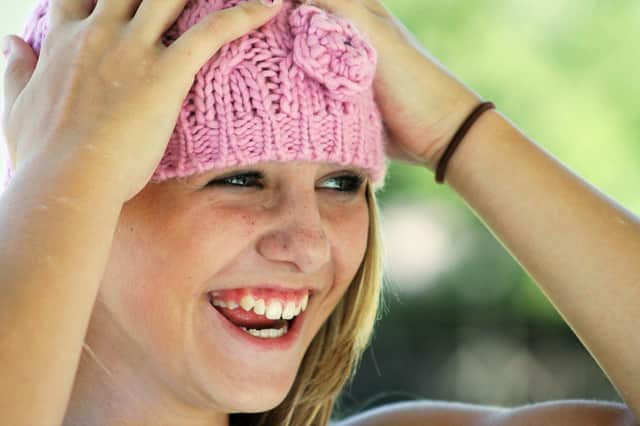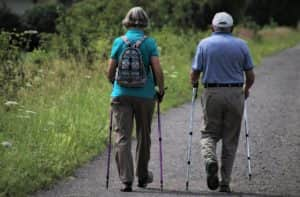Study reveals the best way to beat January blues and boost your mental health
This article contains affiliate links. We may earn a small commission on items purchased through this article, but that does not affect our editorial judgement.


It's a dreary time of year and most people find that their mood dips during January and February, but a study has shown how we can best pick ourselves up and lift our mental state.
Physical activity improves wellbeing more than money, socialising, or new hobbies, new research has found.
Advertisement
Hide AdAdvertisement
Hide AdThe study, which tracked the mental wellbeing of 2,000 UK adults, found that those with active lifestyles reported wellbeing scores 25 per cent higher than those doing little or no physical activity.


Furthermore, a lull in activity levels during winter can have a detrimental effect on mood and wellbeing.
So getting active is the most effective way to start and maintain good mental health levels from January and throughout the year, with most noticeable effects reported in winter months.
People who increase their rate of physical activity, even if only slightly, report a significant increase in their wellbeing.
Advertisement
Hide AdAdvertisement
Hide AdChanges brought about by increased physical activity are greater than that of other lifestyle changes, such as having more money, increasing socialising or starting a new hobby or interest.
The research tracked the mental wellbeing scores of 2,000 people across 14 different markers, such as thinking clearly, feeling relaxed and having energy to spare.
It was found that those with the most active lives experienced the highest levels of mental wellbeing, scoring on average 25 per cent higher than those who have very low levels of physical activity in their day-to-day lives.
A recent positive change in activity levels, regardless of how much exercise was carried out, created the biggest boost to wellbeing scores.
Advertisement
Hide AdAdvertisement
Hide Ad

The Decathlon Activity Index, a study that tracks the UK’s rates of exercise and activity throughout the year, reveals that our activity reaches its lowest levels in November and December.
In winter, the average person is 40 per cent less active than in May when rates of activity are at their highest in the UK.
Chirs Gilroy, marketing and communications director of Decathlon UK, said: “It’s no wonder that so many of us feel the need to get more active in January. As the research shows, physical inactivity has a detrimental effect on our wellbeing.
"This, combined with the reduction in activity levels across the winter months, means that by January we instinctively realise that we need to move more and boost our mood.
Advertisement
Hide AdAdvertisement
Hide Ad“We support RED January’s mission to encourage people to move for your mind because it enables people to make a positive change whatever their ability or interests.
“Whether that’s going for a 5km run or simply exercising in your front room, as our research shows, that positive change can significantly boost your mood and sense of wellbeing.”
Break bad habits and adopt good ones:
The study, conducted with a nationally representative sample of 2,000 adults, was carried out by Decathlon to mark its partnership with RED January 2022.
A free nationwide initiative, RED January encourages people of all abilities and backgrounds to move every day in January to improve their mental health.
Advertisement
Hide AdAdvertisement
Hide AdDecathlon has also launched a new and exclusive range of co-branded merchandise. The range includes an RED January t-shirt for adults and this year a t-shirt designed for kids, both produced from an Eco-design fabric made from recycled polyester.
In addition, there is a RED January snood to help participants beat the chill and cold to keep active, no matter the weather. All profits from the range will be donated to UK mental health sports’ charity, Sport in Mind, supporting the organisation’s mission that uses sport and physical activity to improve the lives of people experiencing mental health.
Find out more at Decathlon.co.uk.